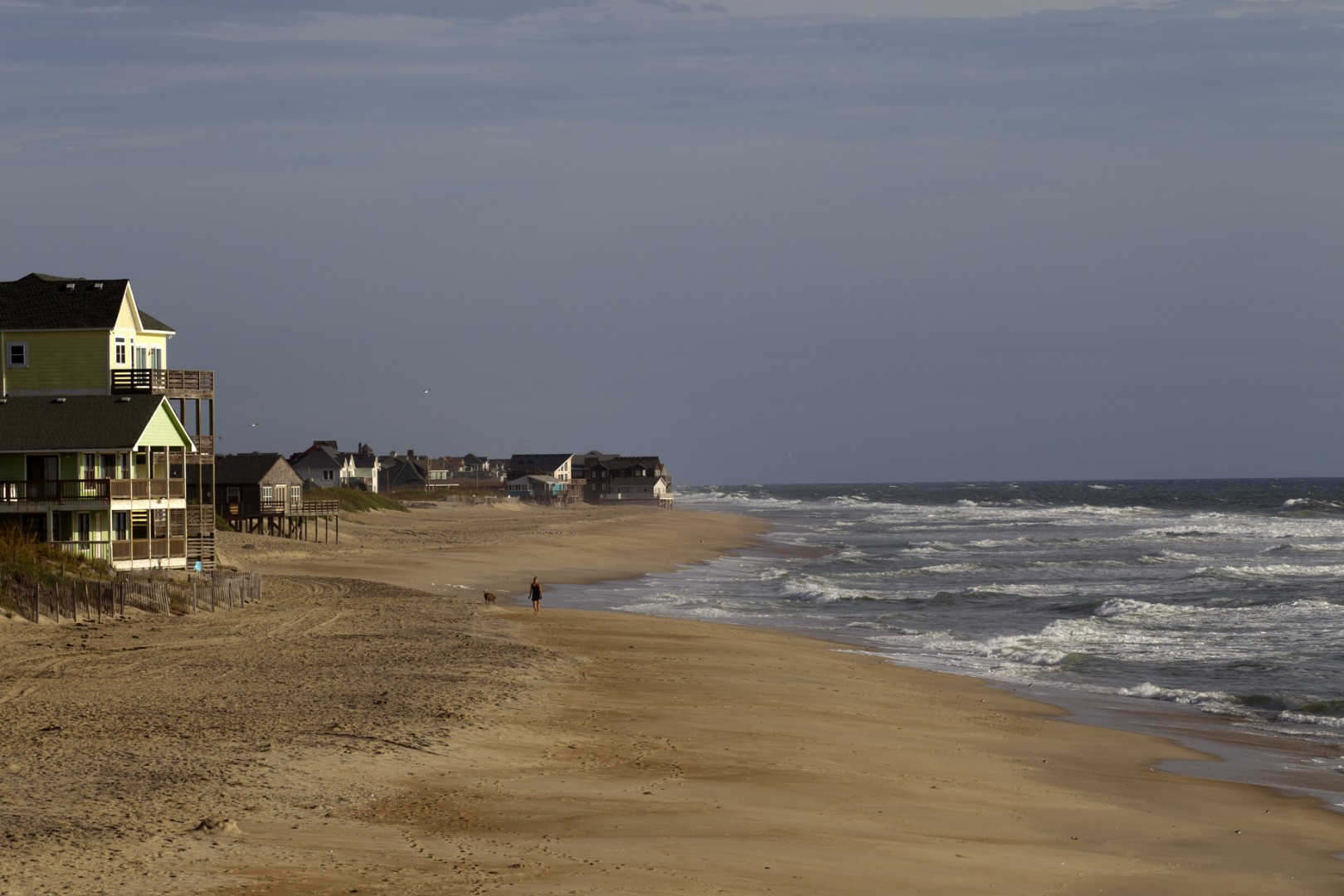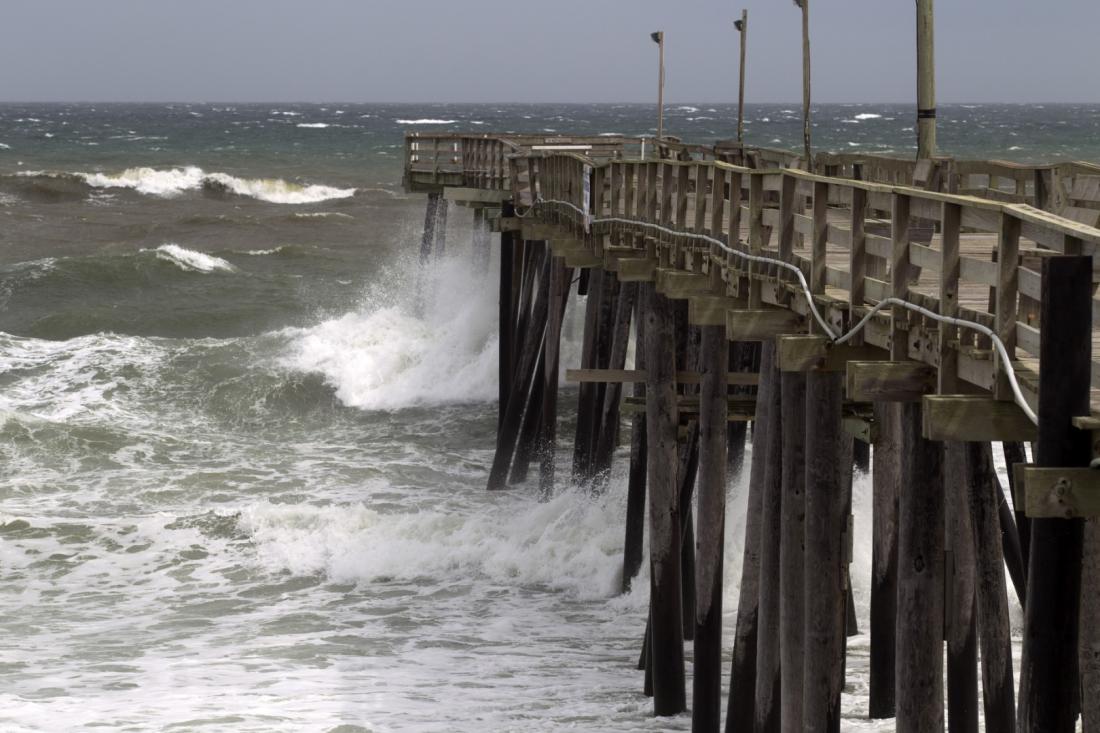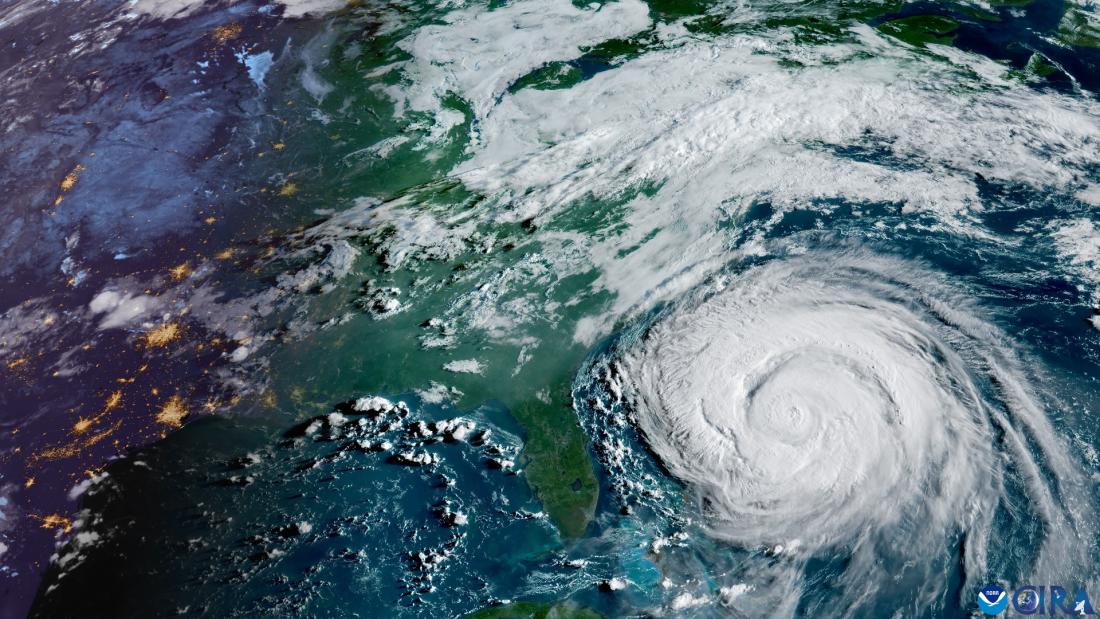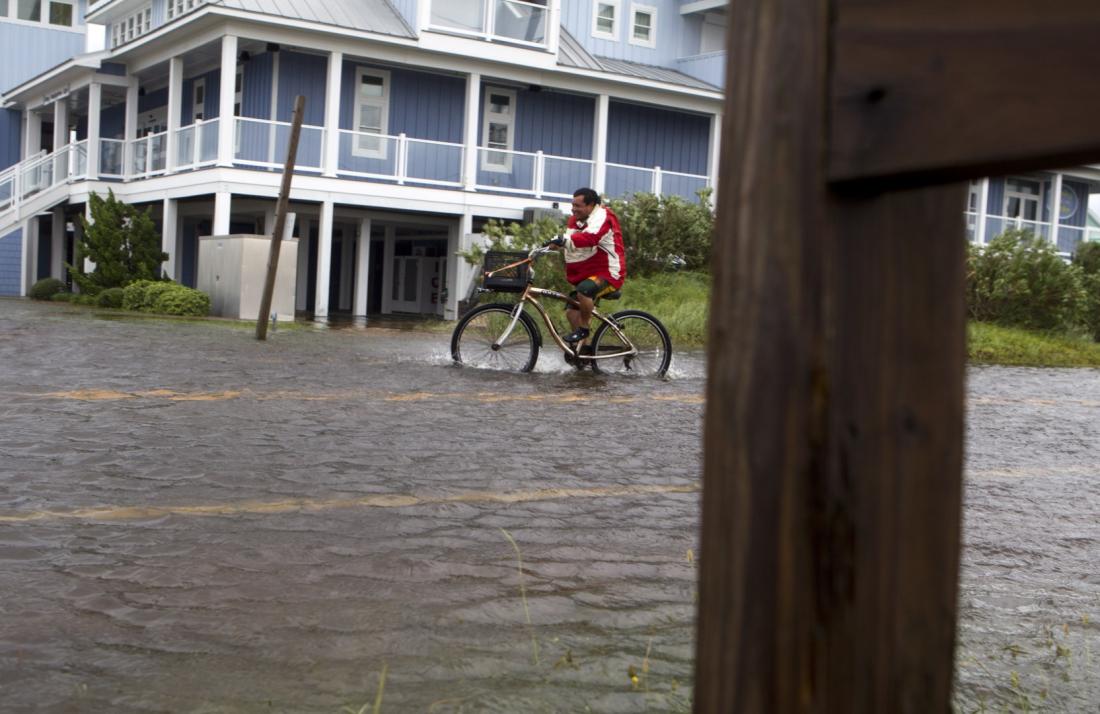
US homes collapse into sea, sparking climate debate online
- Published on September 29, 2025 at 22:41
- 5 min read
- By Manon JACOB, AFP USA
Images of a house in Buxton, North Carolina fallen into the sea on September 16, 2025, widely circulated on social media shared by residents and news outlets (archived here, here, here, here and here).
Local authorities said it was the 12th house in the area to collapse into the ocean since 2020 (archived here). It was not occupied at the time.
An unoccupied beach house collapsed into the ocean while being battered by waves from the coastal storm on Tuesday in Buxton, North Carolina.
— AccuWeather (@accuweather) September 17, 2025
It's the 12th house that has collapsed in the area since 2020 (two others were also removed). pic.twitter.com/5wSz3scY5W
Dare County Planning Director Noah Gillam (archived here) told AFP on September 26 that in Buxton alone, occupancy has been prohibited in 31 houses over the past month following coastal flooding (archived here) brought by Hurricane Erin.
Additionally, according to the local authorities, all oceanfront properties located in Rodanthe are at risk of collapsing (archived here).
As Hurricane Humberto and Tropical Storm Imelda churn in the Atlantic Ocean, local experts predict more properties will likely suffer similar fates on the US East Coast (archived here and here).
"There is a chance that when the next storm is gonna hit North Carolina, one or two other houses are going to collapse," Alyson Flynn, an environmental economist at the North Carolina Coastal Federation, told AFP on September 25 (archived here).
Even if they do not, "general flood damage or storm damage" will occur, she said.
A September 18 Washington Post article and social media posts including video of the collapsing homes attracted replies from multiple climate skeptics.
"That a small house on the beach of a spit of land in the Atlantic Ocean collapsed into the surf during a storm, is not a sign of 'climate change,'" said Steve Milloy, a former Fox News contributor who has previously spread climate misinformation, in a September 18 X post.
"Don't blame this on climate change. Blame it on the people who are stupid enough to build a house ON POLES, ON A SAND BEACH, and then complain when it gets washed away," someone commented on September 18 in reaction to the images.
However, experts say warming can accelerate natural shoreline erosion and the rise of sea levels massively threatens coastal communities on the US East Coast, including North Carolina (archived here).
Shoreline changes
Brad Murray, professor of geomorphology and coastal processes at Duke University, told AFP on September 25 that chronic long-term shore erosion primarily explains the collapses of homes along the Outer Banks (archived here and here).
Laura Moore, director of the Coastal Environmental Change Lab at the University of North Carolina (archived here), agreed, pointing out the properties were originally built back from the shoreline.
Sea level rise and waves contribute to such coastal erosion (archived here).
"Sea level is higher now than it was when these homes were built, which means storms and high tides also rise higher than they used to," Moore told AFP on September 25.
Jayantha Obeysekera, director of the Sea Level Solutions Center at Florida International University (archived here), also pointed to storm surges (archived here), during which waves can rise over dunes, breach barriers and redistribute large volumes of sediment.
Josh Willis of NASA's Jet Propulsion Laboratory in Pasadena, California (archived here) concurred that rising oceans can increase the likelihood of coastal flooding.

Climate impact
Scientists say climate change is supercharging tropical cyclones. Warmer oceans fuel stronger winds, a warmer atmosphere intensifies rainfall and higher sea levels magnify storm surge.
North Carolina has been hit by several hurricanes (archived here) over the past decade, as well as winter storms and cyclones that stayed far offshore but produced large waves that caused widespread erosion.
Storms temporarily shift the shoreline landward, the University of North Carolina's Moore said. Therefore, any increase in storm frequency or intensity can exacerbate erosion that would otherwise occur on a smaller scale.
Kara Doran, an oceanographer with the United States Geological Survey's St. Petersburg Coastal and Marine Science Center (archived here), told AFP on September 26 that more frequent and intense weather events do not allow "for natural recovery of beaches and dunes to take place."
Despite a relatively quiet start with just five named storms so far, the National Oceanic and Atmospheric Administration (NOAA) reiterated in August its forecast of an above-normal season (archived here).

Unsustainable
Most residences swallowed by the sea in the Outer Banks are secondary homes or vacation rentals (archived here).
FEMA's National Flood Insurance Program does not cover any costs incurred by relocating a damaged or threatened structure to another site (archived here).
A bipartisan bill was introduced to help owners move their property before a collapse happens (archived here).
But with no legislative change in sight at this time, locals told AFP that some homeowners just wait for their properties to fall into the sea to be able to file an insurance claim. Others choose to pay out of pocket to move their houses further back from the shoreline.
Barrier islands such as North Carolina's Outer Banks will continue to move, as they naturally do, making some urban development projects unsustainable according to Rob Young, director of the Program for the Study of Developed Shorelines at Western Carolina University (archived here and here).
"It's the rest of that community and the smaller businesses and the smaller property owners that we need to be looking out for," he told AFP on September 25.
Young said accelerated sea level rise and the accumulation of groundwater in the North Carolina coastal plain decrease the ability of rainwater to flow quickly and efficiently into the ocean (archived here).
This is the case for many cities along the East Coast (archived here).
"Norfolk, Virginia has tremendous problems with what they call nuisance flooding from high tides and rain," he said, an issue that studies have documented (archived here).
"Same thing with Charleston and Miami -- all these communities are experiencing significant flooding just from rain, not even from an extreme event."

Young called for the implementation of managed coastal retreat, in which human development is moved out of harm's way (archived here and here).
"We're entering a period where damage is increasing and the will of the federal government to pick up the price tag for that damage is decreasing" he said.
Since his return to the White House, President Donald Trump has said he wants to abolish the US Federal Emergency Management Agency and let states "take care of their own problems."
He accuses the agency of inefficiency and claims without evidence that it has pervasive political bias against Republican-led states.
AFP has previously covered other extreme weather patterns and their impacts.
Copyright © AFP 2017-2026. Any commercial use of this content requires a subscription. Click here to find out more.
Is there content that you would like AFP to fact-check? Get in touch.
Contact us




